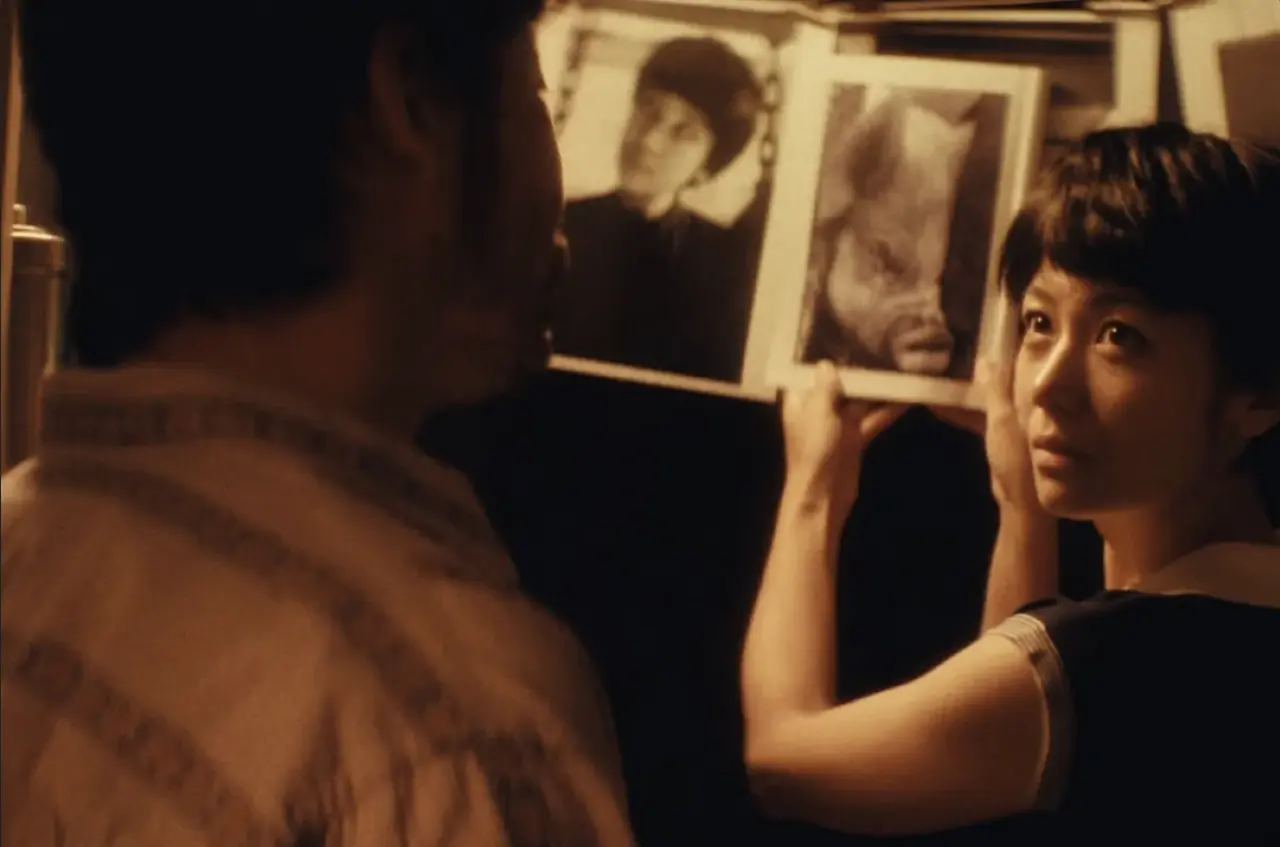‘RAVENS’ Review: ‘Shogun’ Star Tadanobu Asano Plays Celebrated Photographer Masahisa Fukase in a Fascinating Biopic
- 6 months ago
Mark Gill’s depiction of Fukuse’s turbulent life and brilliant work is inventively told and lovingly packaged.
A portrait of the brilliantly gifted and deeply troubled Japanese photographer Masahisa Fukase, “Ravens” is an arresting and engrossing slice of artistic life on the edge from “England Is Mine” director Mark Gill. A mix of dark fantasy and potent drama set largely in the ’60s and ’70s, Gill has fashioned his view of the turning points in Fukase’s life and career as a love triangle between the photographer; his wife and collaborator Yoko Wanibe; and Fukase’s inner demons and artistic desires, which come to startling life in the form of a giant talking raven. Starring Emmy-nominated “Shogun” actor Tadanobu Asano as the artist whose work continues to be discovered and celebrated long after his death in 2012, “Ravens” should appeal to adventurous viewers whether or not they’re familiar with Fukase.
Taking its title from a 10-year black-and-white project published to wide acclaim in 1986, “Ravens” opens with Fukase’s 1982 statement, “I have become the raven, I am the raven.” As interpreted by Gill, this raven is the manifestation of thoughts in Fukase’s troubled mind and materializes here as a human-sized creature that seeks to shame him away from what is conventional and conformist, demanding instead that he seek the risks and extremes an artist must explore in the pursuit of truth and greatness.
The bold conceit works right from the outset. Appearing in the opening scene in a dingy bar holding photographs of the young and old Fukase, the creature silently asserts himself as a central player in the story that’s about to unfold. An entity no one but Fukase can see and whom he sometimes talks to when others are present, the Raven (played by Jose Luis Ferrer under a stunning creature suit and speaking in husky English) is the conduit that brings viewers into the mind of an artist who is not always likable but is never less than interesting.
For much of the running time, Gill’s freewheeling film springboards from a boozy, disillusioned and almost-forgotten Fukase hanging out in his local bar in 1992, to events that shaped his life and work. With his Raven never far away, Fukase infuriates his conservative father Sukezo (Kanji Furutachi) by refusing to take over the family photography studio in Hokkaido and leaving home to study in Tokyo, where he intends to prove that “photography can be art.”
Becoming part of the vibrant avant-garde that flourished in post-war Japan, Fukase first gains notice with his 1961 collection “Kill the Pigs,” shot inside a Tokyo slaughterhouse. By delightful contrast, Fukase’s innovative work in commercial photography causes a stir with his old-fashioned clients when he asks the female model in a vacuum cleaner sales shoot to “play” the appliance like a guitar and strike a rock star pose. It’s a terrific little moment that says a lot about the clash of old and new Japan.
In the giddiness of his new bohemian life, Fukase falls in love with Yoko (Kumi Takiuchi), a free-thinking nonconformist who becomes his model and wife. In vibrant sequences set to the beat of ace Japanese pop tunes of the times, Fukase and Yoko create stunning work that leads to exhibitions in New York and the fringes of fame. Gill’s screenplay is adroit at showing the restlessness and anxiety forever accompanying Fukase, who cannot help but be consumed by dark thoughts even at times of personal happiness and professional success. Soon after Fukase takes commercial work to support Yoko’s desire to become more than just his model by training in classical Noh theater, his Raven berates him for becoming a house husband “whose life as an artist is a failure.”
The film gives Yoko her due as a true collaborator for whom the simple designation of wife and muse is insufficient. Her relationship with Fukase and his Raven is rightfully depicted as the guiding force in his work that continued to produce superb images, including his series of underwater self-portraits long after the depression that consumed him following their 1976 divorce. As his lifelong friend and supporter Morio Shoda (Sosuke Ikematsu) tells Fukase when he complains about Yoko stealing the attention of the press in New York, “She is why your work sings.” Takiuchi’s performance lives up to that assessment. Whether playing Yoko bopping around as a kind-of Edie Sedgwick “it” girl in Tokyo’s 1960s underground scene, demanding her rights as a woman and an artist in the 1970s or remaining part of Fukase’s life during his terribly sad final years, Takiuchi is simply wonderful.
Nicely produced and very well photographed by DP Fernando Ruiz, whose palette ranges from gorgeously warm and lush to starkly cold as Fukase’s emotions swing wildly from one end of the spectrum to the other, “Ravens” declares itself as being “inspired by true events.” The omission of some characters and events may cause minor quibbles among viewers with deep knowledge of the artist, but as an account of the most significant forces in Fukase’s life and output, it rings true and gets to the heart of Fukase’s response to a question about his creative process. “Pick up a camera then scream and bleed,” he says.
Reviewed online, Oct. 31, 2024. In Tokyo, Austin film festivals. Running time: 116 MIN.
- Production: (France-Japan-Spain-Belgium) An ARK Entertainment (in Japan), Eurozoom (in France) release of a Vestapol, ARK Entertainment presentation of a Vestapol, ARK Entertainment, Minded Factory, Katsize Films, The Y-House Films production, in association with 3DAP Japan, TPHQ/Teamo Prods., Honlodge Prods., Take Five Invest, Townhouse Media Filmworks. (World sales: K5 International, Cologne.) Producers: Orian Williams, Cyril Cadars, Megumi Fukasawa Ishii, Mark Gill, Hideki Kawamura, Hiroyasu Nagata, David Barrera, Johanna Horn, Mohaan Naader, Nitsa Benchetrit, Henry Gillet and Sam Fayed.
- Crew: Director, writer: Mark Gill. Camera: Fernando Ruiz. Editors: Frank Moderna, Chika Konishi. Music: Theophile Moussouni, Paul Lay.
- With: Tadanobu Asano, Kumi Takiuchi, Jose Luis Ferrer, Kanji Furutachi, Sosuke Ikematsu, Saki Takaoka, Mayumi Kanetani, Akihiro Yamamoto, Go Jibiki, Yoko Otaka, Juri Kawasaki, Masaki Miura. (Japanese, English dialogue)


